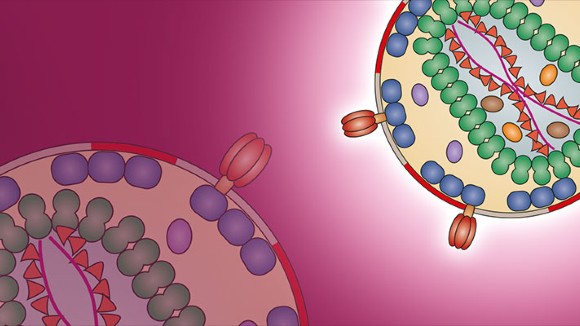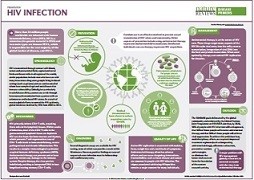PrimeView
Millions of people are infected with HIV globally. This PrimeView from Nature Reviews Disease Primers summarizes the prevention, management and research goals in HIV, which are described in more detail in the accompanying Primer.
Recent Nature News articles
Scientists have the tools to end the epidemic. They just need better ways to use them.
Antibody shows promise as treatment for HIV
Clinical trial is encouraging first step to developing new approach to HIV prevention, treatment and cure.
French teenager healthy 12 years after ceasing HIV treatment
Eighteen-year-old joins small group of patients who can control the virus after discontinuing drugs.
Previous focuses
Nature Immunology Focus: The Immunology of HIV
Nature Immunology presents a series of specially commissioned articles that discuss the most recent progress in understanding the immune response to HIV and how this new insight can be harnessed for prophylactic vaccines and immunotherapies.
The miraculous drugs that keep so many HIV-positive individuals alive have blunted the urgency with which people talk about the AIDS epidemic. Even so, there is a renaissance afoot in HIV/AIDS research, with renewed focus on a cure, more powerful drugs and innovative approaches to prevention.
Nature Medicine Focus: HIV/AIDS Research
Basic HIV research has, over the past two decades, brought about enormous advances that have transformed a fatal disease into a manageable illness. HIV vaccine research has suffered more setbacks than successes, but a renewed focus on fundamental questions about HIV pathogenesis will provide new glimmers of hope.
Human immunodeficiency virus (HIV) /acquired immunodeficiency syndrome (AIDS) continues to be a major health problem. The development of an effective vaccine and new drugs to treat established disease remains an urgent need. This special collection presents a selection of papers published in Nature highlighting the progress that has been made towards conquering this enormous challenge over the past couple of years.
Nature Web Focus: Frontiers in HIV/AIDS
Development of an effective HIV/AIDS vaccine and new drugs to treat established disease remain an urgent and pressing need. To conquer the enormous challenge demands a far better understanding of the biology of the virus, its interaction with infected cells, and the response of the immune system, than is currently at our disposal. This web focus presents a selection of recent research papers in Nature that advance our knowledge in this regard. It also includes a Feature highlighting the expanding HIV epidemic in China, a Review article covering the challenges in vaccine development, and a Commentary calling for better communication and cooperation between vaccinologists, virologists and experts in innate anti-viral immune responses. We hope you will find it helpful.


